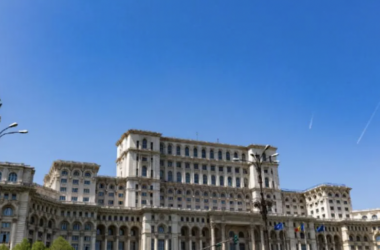The European Parliament is investigating serious allegations regarding the management and recruitment practices of the European Union Agency for Asylum (EUAA) following a confidential report from the EU’s anti-fraud office, OLAF.
On Wednesday, Parliament is set to vote on whether to delay the approval of the EUAA’s 2023 financial accounts, giving lawmakers additional time to examine the troubling claims.
“We cannot yet be sure that the agency’s measures and conclusions are appropriate,” stated Erik Marquardt, a Greens MEP who is leading the investigation into EUAA finances. In response to OLAF’s findings, the EUAA supervisory board issued a formal warning to executive director Nina Gregori, urging her to “ensure more efficient and transparent procedures” regarding hiring and human resources. The board, however, refrained from taking disciplinary action, a decision that has sparked further scrutiny from lawmakers.
“We will assess with the EUAA, its management board and OLAF to find out how the problems arose and whether appropriate measures have been taken,” Marquardt added. Following “concerning” findings in the OLAF report, which threatened the “stability, governance, and reputation” of the agency under Gregori’s leadership, Parliament’s budgetary control committee voted in April to freeze the approval of the accounts and announced the opening of an investigation. Wednesday’s vote will confirm that decision.
Gregori denies any wrongdoing, stating, “The alleged facts raised in the OLAF report have not been found established … no misconduct was found, and I did not receive any disciplinary penalty,” in a written statement to POLITICO.
This controversy comes at a particularly challenging time for the EU, as migration remains a top concern for European voters. The European Commission is engaged in negotiations on a new deportation regulation and is working to implement an asylum and migration law that took nearly a decade to pass.
The OLAF investigation began in late 2022, triggered by anonymous complaints from EUAA staff about irregularities in personnel decisions. The findings, once shared with lawmakers, prompted a rare show of unity within the often-divided Parliament. On April 8, the budgetary control committee voted unanimously to delay the approval of the EUAA’s 2023 accounts and reopened scrutiny of the agency’s leadership, directly criticizing how the agency’s supervisory board handled the OLAF findings.
“The director has some serious explaining to do,” remarked Swedish MEP Jonas Sjöstedt, a member of the budgetary control committee. “That will decide her future in the position.”
While the delay in adopting the accounts holds no legal consequence, it serves as a political warning to the agency’s leadership. With public scrutiny of migration policies on the rise, lawmakers want to ensure that governance failures will not be overlooked.
Parliament has previously used similar tactics to push for resignations at EU migration agencies, such as the EUAA and the border agency Frontex. Gregori’s predecessor, José Carreira, resigned in 2018 following an OLAF investigation that led to a delay in approving the agency’s accounts. Similarly, pressure from Parliament led to the resignation of Frontex’s head in 2022.




